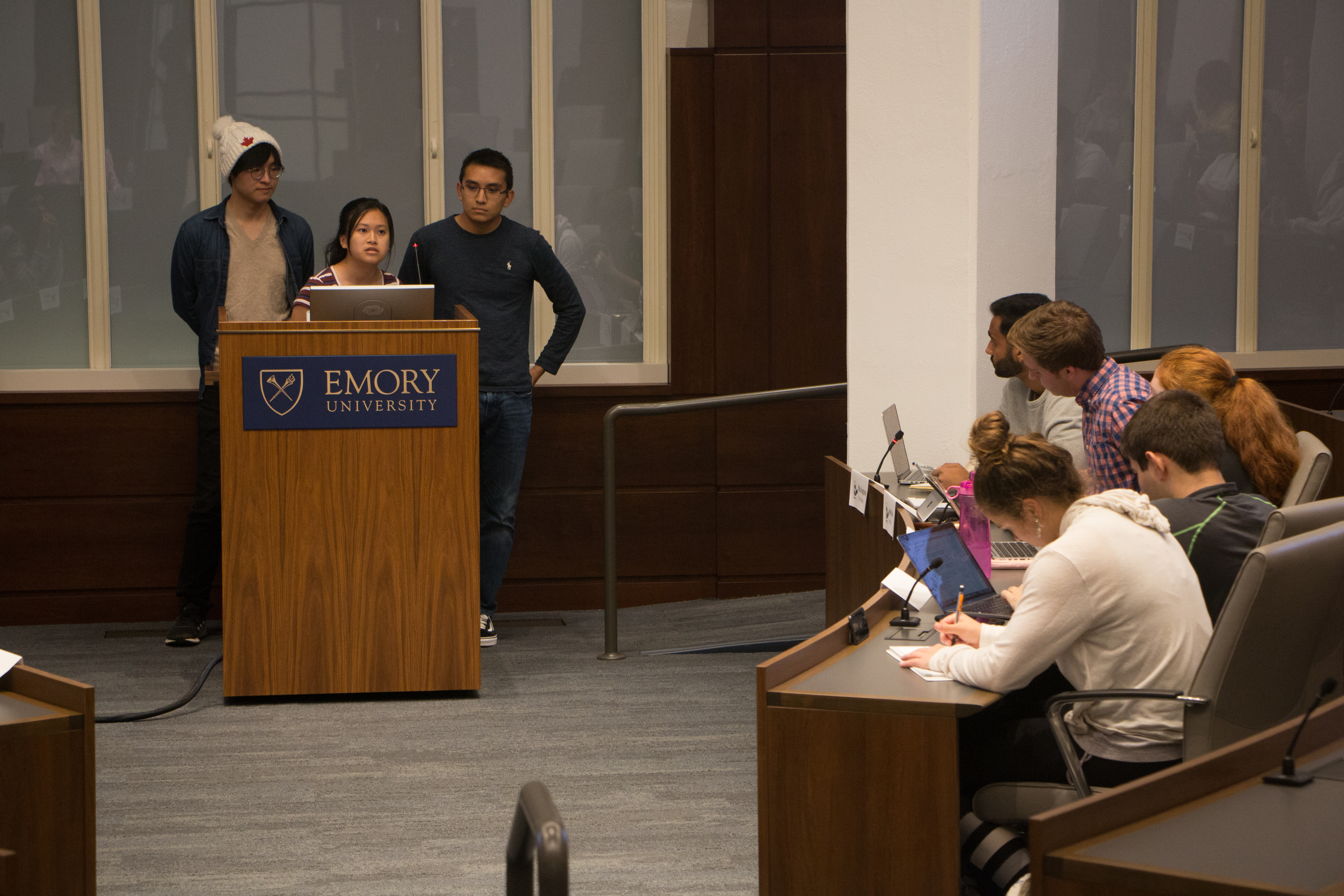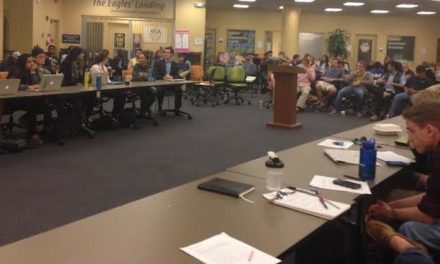Nobel Laureate in Economics Christopher Sims spoke about common misconceptions of government debt and its policy implications for the United States at the 2019 Kafoglis Nobel Laureate Lecture on Monday. Roughly 250 people attended the event at White Hall.
Sims, who is the John J. F. Sherrerd Professor of Economics at Princeton University (N.J.), won the Nobel Prize in Economics in 2011 along with Thomas Sargent for their work examining the relationships between economic policy and economic variables such as gross domestic product and employment. Sims developed a method using vector autoregression to study the impact of temporary changes in economic policy on the economy. Sims served as president of the American Economic Association in 2012.
Sims explained to students that there are two opposing views about national debt, one that says rapid reduction of the debt is necessary and another that says that national debt is not a significant issue. He said both viewpoints are misinformed.
“Ideal policy is to slowly bring debt down,” Sims said. “It’s not to drastically reduce debt, but it’s also certainly not to have debt go up and up.”
He said it is misleading to suggest that debt must be reduced quickly with methods such as increased taxes in order to decrease the financial burdens on future generations.
Sims added that future generations could also pass on the debt and that the real burden is the interest payments.
“The burden on [future generations] is … the $1,000 per capita to service the debt,” Sims said. “It’s not something to be dismissed, but it’s not something to panic about. We’re at a level of debt which we should try to prevent from increasing and maybe slowly decrease over time.”
The opposing perspective suggests that since the central bank can keep inflation steady using monetary policy, there is no problem with the government issuing more debt. However, Sims said this would lead to the value of the dollar decreasing. The Federal Reserve would be unable to control inflation because they do not control fiscal policies, which also affect inflation.
“The Fed can’t control inflation regardless of what [Congress] does,” Sims said. “If [Congress] issues debt and does not respond to increased interest rates with increased fiscal effort, the central bank can lose control of inflation.”
When asked about the implications of high debt for the U.S. given that the dollar is widely used as a reserve currency, Sims said that since U.S. debt has a large market and is easy to trade, people are willing to hold it at lower interest rates. He continued that if inflation becomes volatile, demand for the dollar would diminish, affecting the ability of the U.S. to borrow.
“If we do a bad enough job with policy [and] if inflation becomes volatile, we could stop having demand for the U.S. dollar as a reserve currency,” Sims said. “The more of your debt that is held by foreigners, the more tempting it may be [for the U.S.] to default. That could be devastating to our ability to borrow.”
Carson Rea (22C) said that Sims was fair in his lecture, and he was impressed by the turnout at the event as well.
“He was very fair and did his best to steelman,” Rea said. “He was clearly fighting for the truth.”
Ninad Kulkarni (he/him) (22C) is from Hyderabad, India, majoring in economics and mathematics. You can catch him cheering for Bayern Munich and making poor attempts at playing sports.





